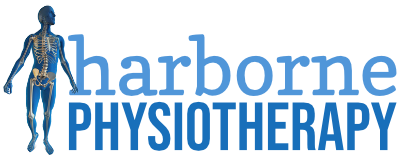Elise Fleming (@EliseFlemingPT)
( On February 3rd 2016, Joanne Millios ( Perth, Western Australia) presented to the final year Physiotherapy Students in Trinity College Dublin on the topic of Men’s Health Physiotherapy via Skype. This blog is based on that #globalpt event)

As a final year Physiotherapy student in Trinity College Dublin, Ireland our new Advances in Physiotherapy Theory and Practise module is helping us survive this leap into the unknown ( life as a qualified Physiotherapist ) by broadening our horizons. We have been introduced to opportunities that we may otherwise never have considered, and career paths we might never have even known existed. You can follow us on twitter at @PtTcd and online https://medicine.tcd.ie/physiotherapy/
One morning, we’re sitting in class having an interactive Skype session with an Irish physiotherapist in Jordan who is making full use of her women’s health experience with rape crisis victims, and the next morning at 9am we, bleary-eyed in Dublin, are catching up with Jo Milios in Australia as she finishes up her working day (GMT +8.00). We are all appreciative of Dr Emma Stokes (@ekstokes) organising this for us.
Jo Milios is a specialist physiotherapist in Men’s health in Perth, Australia. She works closely with urologists in the rehabilitation of men undergoing treatment for prostate cancer and other disorders such as chronic pelvic pain/pudendal neuralgia. To date, she has treated over 2000 prostate patients and is also responsible for establishing Prost!, a non-profit exercise club for survivors of prostate cancer, as well as other initiatives such as Joga, a unique blend of physiotherapy and yoga.
http://www.menshealthphysiotherapy.com.au/
Having received lecture slides in advance of this lecture, we were able to follow the same presentation in real-time, despite being on opposite sides of the world. Jo proceeded to give our class an incredibly informative lecture via Skype, covering everything from the basics of male anatomy and physiology, to the prevalence of prostate cancer in Australia and the newest advancements which have been made in pelvic floor muscle assessment. She demonstrated how the removal of a prostate gland effects the position of the bladder using a plastic model, and there was even a live demonstration of pelvic floor muscles in action using diagnostic ultrasound.
Bringing the focus back closer to home, it is important to note that the prevalence of prostate cancer in Ireland is similar to that of Australia; on average, 1 in 7 Irish men will be diagnosed with prostate cancer in their lifetime. Every year there are over 3,000 new diagnoses in Ireland, rendering it the second most common cause of death within the realm of cancer in men, after skin cancer.
 Urinary incontinence and erectile dysfunction are two symptoms experienced by approximately 99% of men who undergo prostate surgery. Only about 30% of those men will regain sexual function, while 98% exhibit the ability to regain urinary function quickly if they engage in proper rehabilitation and support. In the absence of such rehabilitation, these undesirable side effects can have serious implications on men’s mental health, including contributing to the breakdown of relationships, depression, anxiety and sometimes even suicide.
Urinary incontinence and erectile dysfunction are two symptoms experienced by approximately 99% of men who undergo prostate surgery. Only about 30% of those men will regain sexual function, while 98% exhibit the ability to regain urinary function quickly if they engage in proper rehabilitation and support. In the absence of such rehabilitation, these undesirable side effects can have serious implications on men’s mental health, including contributing to the breakdown of relationships, depression, anxiety and sometimes even suicide.
Jo’s work centres around the fact that the male pelvic floor takes about 3 months rehabilitate. This being said, beginning this 3 month stint of rehab prior to surgery can half the length of the incontinence experience post-surgery. There is an urge for urologists to refer men at least 4-6 weeks prior to radical prostatectomy – a decision which can reduce the potential 6-12 months of incontinence to a mere 6-12 weeks. There have even been some of Jo’s patients having received their 3 months of physiotherapy prior to surgery who have enjoyed absolutely zero incontinence!!!
As part of her PhD, Jo is conducting research into the validity of the non-invasive assessment techniques that make use of diagnostic ultrasound. Traditional pelvic floor muscle tests for men are carried out by digital rectal exam using the Oxford scale or perinometers. These are subjective, invasive, unreliable and unrelated to clinical presentation. On the other hand, non-invasive pelvic floor muscle function tests such as RRT (rapid response test) and SET (sustained endurance test) utilising diagnostic ultrasound are objective, reliable and based on physiological function. These tests are linked with clinical presentation, are simple to use and provide a valid baseline for treatment. Instructions given to the patient are clear and direct. Having coined the term ‘lift your nuts to your guts’ Milios removes any awkwardness or any ambiguity associated with the task. On the downside, asking someone to do this doesn’t sound quite as appealing without the twang of an Australian accent.

So what is next for these cancer-free, continent men? That’s right, they want their mojo back!
Neuropraxia arises from the effects of thermal injury and traction during surgery. Damage to the cavernosal nerves, pudendal nerve (S2-S4), vascular supply and smooth muscle results in the loss of erectile function. Unfortunately, there is a significant delay in the restoration of sexual function, partly because of the time frame needed for neurovascular repair. She highlights the need for MDT input during this time. It is of paramount importance that these male patients are educated and reassured by answering any questions which they may have. Pelvic floor exercises must also not be underestimated in the pursuit of overcoming erectile dysfunction.
The aim of penile rehabilitation is to increase blood flow to the corpus cavernous and corpus spongiosum. Exercise has been proven to increase sheer stress in vascular walls, which leads to the production of nitric oxide. The presence of this compound leads to healthier endothelial tissue and enhanced vascular function. Therefore shouldn’t it follow that exercise stimulates penile blood flow, helping to restore the structural changes that occur during prostatectomy?
Enter Prost! – a bi-weekly exercise programme for men, whose mission is to ‘Build Mood, Muscle and Mateship during your Prostate Cancer Journey.’ On top of providing these men with a strong support system, half of the proceeds raised go towards research at the University of Western Australia.

http://www.menshealthphysiotherapy.com.au/pcwa-inc/
At the end of our module we are invited to present a business proposal and outline how this will benefit potential future users. During that 9am lecture, Milios was asked to give a quick example of the economic benefit of her work. Her response drew attention to the fact that there is no government funding for continence pads or Viagra in either Ireland or Australia. Something as simple as not having to buy these products to combat the side effects of prostate surgery is of immense benefit to these men!
On behalf of the students and staff at Trinity’s School of Physiotherapy we would like to thank Jo Milios for her time in sharing her amazing work with us. Thanks to her, Ireland may now have a whole new set of soon-to-be graduates interested in Men’s health to complement her and her colleagues in their quest down-under.
Jo will be delivering her Prostate course in Dublin on the weekend of 24/25thSeptember 2016 as part of her “Nuts & Bolts European Tour” https://www.eventbrite.co.uk/e/dublin-ireland-nuts-bolts-of-mens-health-physiotherapy-prostate-cancer-gold-sponsers-the-private-tickets-20820821638
Elise Fleming is a final year Physiotherapy Student in Trinity College Dublin, Ireland




 Urinary incontinence and erectile dysfunction are two symptoms experienced by approximately 99% of men who undergo prostate surgery. Only about 30% of those men will regain sexual function, while 98% exhibit the ability to regain urinary function quickly if they engage in proper rehabilitation and support. In the absence of such rehabilitation, these undesirable side effects can have serious implications on men’s mental health, including contributing to the breakdown of relationships, depression, anxiety and sometimes even suicide.
Urinary incontinence and erectile dysfunction are two symptoms experienced by approximately 99% of men who undergo prostate surgery. Only about 30% of those men will regain sexual function, while 98% exhibit the ability to regain urinary function quickly if they engage in proper rehabilitation and support. In the absence of such rehabilitation, these undesirable side effects can have serious implications on men’s mental health, including contributing to the breakdown of relationships, depression, anxiety and sometimes even suicide.
